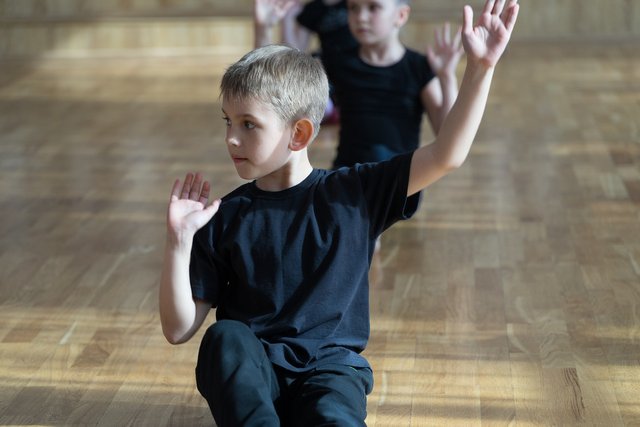Management of emotions in Children (Part 2)
Knowing in what moments of development the emotions of children are of fundamental importance, not only to verify that their growth path in respects to desirable normality parameters, but also to allow adults who interact with them to do so while respecting the possibilities in their children.

Credits Pixabay
I have already talked about emotional management but there are still a little more to it because it is connected to the well-being of all kid. There is no parent who does not know at what age there child will probably begin to take the first steps or pronounce the first words. But the fundamental stages of its emotional development are however unknown to most of them.
This path is made possible by parallel cognitive development with which it maintains a constant relationship of reciprocal influence and is conditioned by social and cultural factors. This is why deepening the parents' knowledge regarding this theme also means making them able to exert a good influence on the emotional development of their children.
Emotions originates differentiating themselves from an initial state of undifferentiated excitation.
This path is made possible by parallel cognitive development with which it maintains a constant relationship of reciprocal influence and is conditioned by social and cultural factors. This is why deepening the parents' and guardians knowledge regarding this theme also means making them able to exert a good influence on the emotional development of their children.
Following these simple tips could be a good start:

Credits Pixabay
- Beware of emotions:
Guardians / educators should devote their attention to the emotional development of children to be more easily observable of their growth, such as Expression, understanding and emotional regulation are the three basic components of emotional competence, which plays a fundamental role in promoting healthy psychological development.

Credits Pixabay
- Name emotions:
Helping children to name their internal experiences improves their emotional competence and directs them towards a correct management of their emotions. For example, to confuse sadness with hunger, not only is it a sign of difficulty in emotional expression but can induce the child to seek consolation in food, rather than in the relationship with himself and with others.

Credits Pixabay
- Do not blame emotions:
It is important to pass on to children a full acceptance of all the emotional experiences that they experience. What can instead be questioned is the mode chosen by the child to express their emotions.
If a kid gets angry, try not to tell him that he should not be angry but help him to express his rage in the most correct way, than rather scold him for choosing inappropriate behavior. This eventuality could occur even less when you are more able to recognize and respond to your anger even in the absence of wrong behavior.

Credits Pixabay
- Let the unpleasant emotions live:
Seeing a suffering child, even for the most trivial of reasons, is always an unpleasant experience for educators or guardians but only by giving them this chance we will give them back an image of themselves as individuals capable of surviving even sadness. In addition, as taught by The Little Prince "you must also bear caterpillars if you want to see the butterflies ... They say they are so beautiful!".
Great post!
Thanks for tasting the eden!
Stunning post and i love you reference to the little prince at the end:)
It is indeed a huge task dealing with emotions of kids. Sometimes, the parents of such kids take a biased stand and this leads to problems in interactions with teachers. I have talked to such parents during an interactive session with other parents in our village school